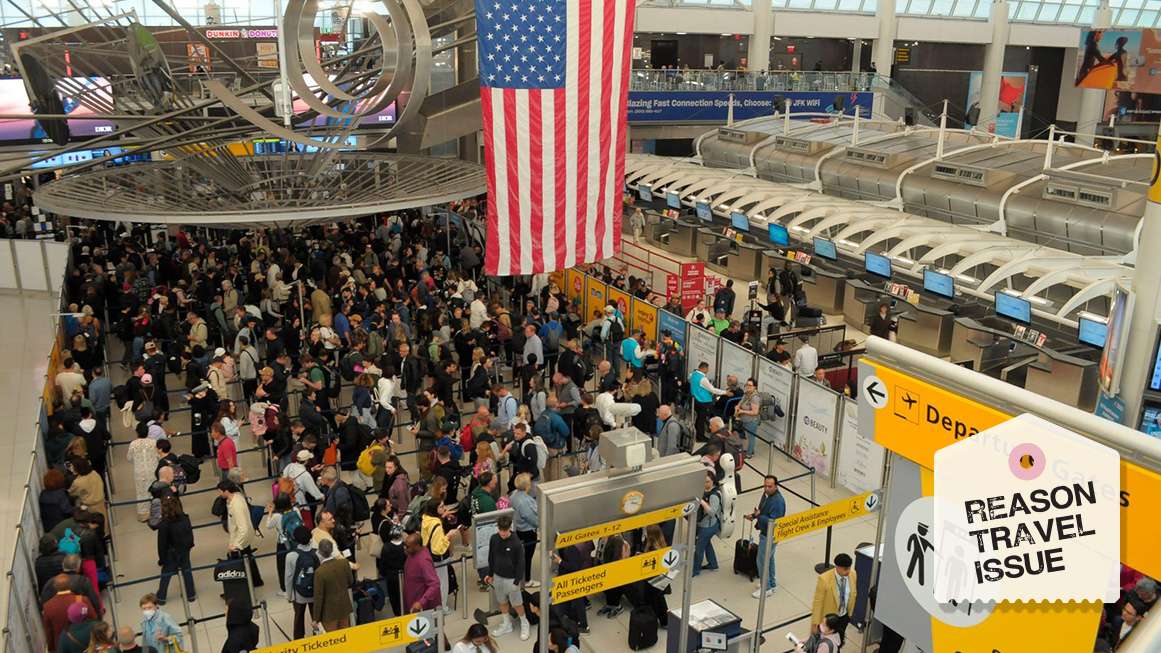The Impact of Trump’s Policies on U.S. Travel and Tourism
As the Trump administration implemented a series of policies that affected various aspects of international travel, the domestic travel and tourism industry faced significant challenges. These policies included actions such as detaining college students, denying entry to British crust-punks, rejecting transgender passports, and deporting tattooed Salvadorans. Additionally, there were plans to ban visitors from 43 countries, which created uncertainty for the travel sector.
According to research firm Tourism Economics, historical data indicates that trade and geopolitical tensions can influence travel demand. Initially, the firm had predicted an 8.8% increase in inbound visits to the U.S. in 2025. However, due to the current climate, this forecast was revised to a 5.1% drop. Inbound travel spending could fall by 12.3%, resulting in a $22 billion annual loss. The impact of these changes was evident in March, where foreign visitor numbers dropped by 18.4%, with Canada being the most affected.
On April 2, President Donald Trump announced import taxes averaging 22%, marking the largest tariff increase in U.S. history. This move posed a triple threat to America’s $200 billion travel and tourism industry. First, the cost of goods would increase for hotels, airlines, and other sectors, potentially leading to higher rates. Second, disruptions to global trading systems would affect key sources of U.S. visitation, such as China, India, and Japan. Finally, the souring of overseas public opinion, particularly in regions criticized by the Trump administration, is already affecting travel numbers.
Economic Consequences for Domestic Travelers
Americans whose incomes are not tied to the enthusiasm of overseas visitors may believe that the turmoil in the industry will not affect their own travel plans. However, this assumption is incorrect. Domestic hoteliers heavily rely on imports for furniture, especially from high-tariffed countries like China and Vietnam. Even Trump’s own hotels are filled with foreign-made items, including dishware and chandeliers.
The increased cost of goods immediately reduces Americans’ discretionary spending, which is the source of travel budgets. Recessions often lead to fewer vacations, sometimes significantly. After Trump’s tariffs, major economic forecasting agencies raised their expectations for an economic downturn. Consumer confidence also closely correlates with travel planning; it was at a four-year low even before the “Liberation Day” tariffs. Further losses in the stock market, such as a 3% drop in the Dow Jones Industrial Average since Inauguration Day, would also depress demand.
Currency and International Travel
The dollar has been propped up by Washington’s leadership in global tariff reduction. Now, with those tables turned, the greenback is less desirable as the world’s backstop currency, placing downward pressure on its value. The dollar slid 7% against the euro in Trump’s first four months in office. American bookings to now-more-expensive overseas destinations were already down 13% this year before the tariffs.
A mid-March Travel Weekly survey of 400 agents found that 59% had heard customer concerns about anti-American sentiment abroad, with 22% reporting resultant cancellations. A YouGov poll in early March showed that no European country had a net positive view of the U.S., with favorability plummeting between 6 and 28 percentage points over the previous quarter.
Domestic Travel Challenges
Starting on May 7, Americans are no longer allowed to board a commercial flight unless using a REAL ID. While Secretary of Homeland Security Kristi Noem stated that people without compliant documents may be diverted to a different line, the Transportation Security Administration reported that 19% of current travelers were passing through checkpoints without Real ID-compliant documents.
Another challenge involves the Protecting the American People Against Invasion executive order, requiring foreigners to register with and get fingerprinted by the Department of Homeland Security (DHS) within 30 days of being in the country. This affects millions of Canadians who previously traveled visa-free into the U.S. for up to six months. Enforcement of this rule could lead to fines or imprisonment for non-compliance.
International Repercussions
The era of permissionless and comparatively anonymous travel is over. Trade wars are making international exchange more expensive and less fun. Even those who choose to stay in the U.S. may find themselves asked to prove their legal status to law enforcement. The past was another country, one that many of us wish we could still visit.



